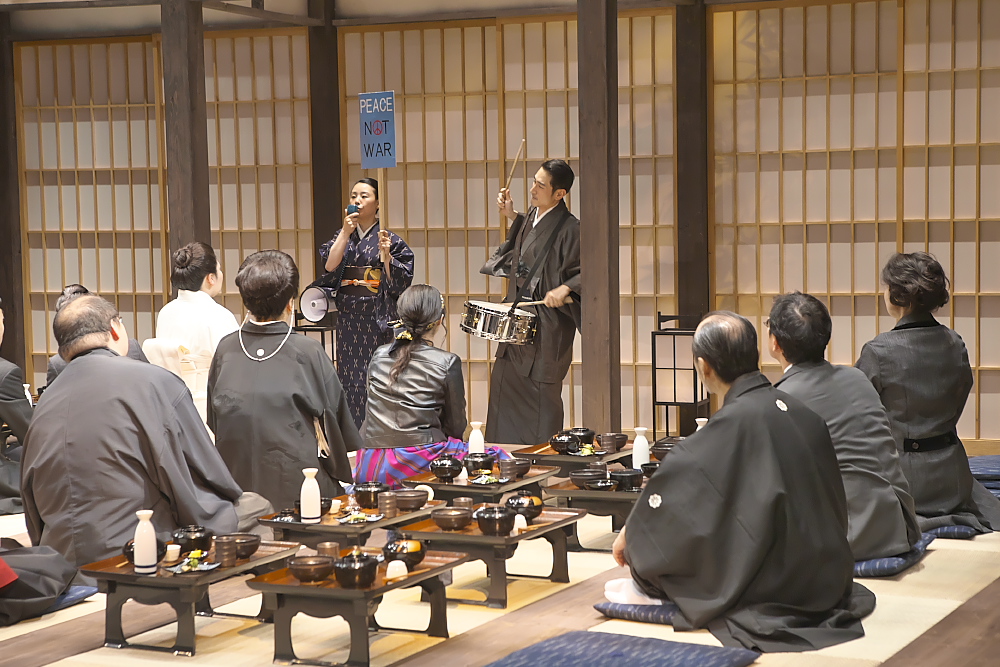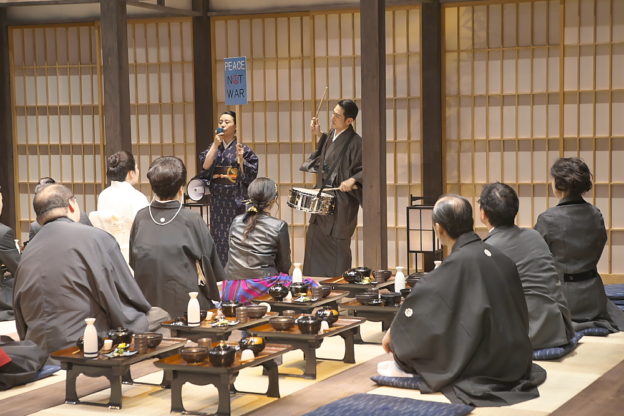
In today’s post-truth Japan, every day seems to bring new scandals in the Diet, corporations, or even the sweaty world of sumo. So how can “fictional” theater ever hope to help audiences get a handle on what’s going on?
To address this question, playwright-director Oriza Hirata revisits the modernizing Meiji Era (1868–1912) in his new play “Nihon Bungaku Seisuishi” (“The Rise and Fall of Japanese Literature”). Until then, written Japanese had been so literary that it was the exclusive domain of elites — but then along came writers such as Shimei Futabatei, Ogai Mori, Takuboku Ishikawa and Soseki Natsume, who colloquialized it and so opened the world of news and ideas to the masses.
Basing this work on Genichiro Takahashi’s massive serial novel that began in 1997, Hirata has created two hours of hilarious entertainment performed by his Seinendan theater company. Divided into four scenes, each set at one of those writers’ funerals, it portrays a mix of eccentric and artistic literary and political authors both swapping tittle-tattle and enthusiastically sharing their visions for the new Japan emerging from centuries of military dictatorship.
In addition, though, the play features extra bridges Hirata has fashioned to today’s world, including hot gossip such as the dubious links between Prime Minister Shinzo Abe and his close friend’s new college in Ehime Prefecture — which the characters all eagerly, and wittily, race to tweet about.
So, while those real-life authors tried in their time to create democratic discussion forums using the new colloquial language they pioneered, Hirata is trying to do much the same, with both wit and sarcastic wisdoms, for his audiences — believing, as he said recently, that it’s more effective to weigh social issues through our daily conversations than by asserting opinions from a stage.
The play opened June 7 and run till July 9 at Kichijoji Theatre.

